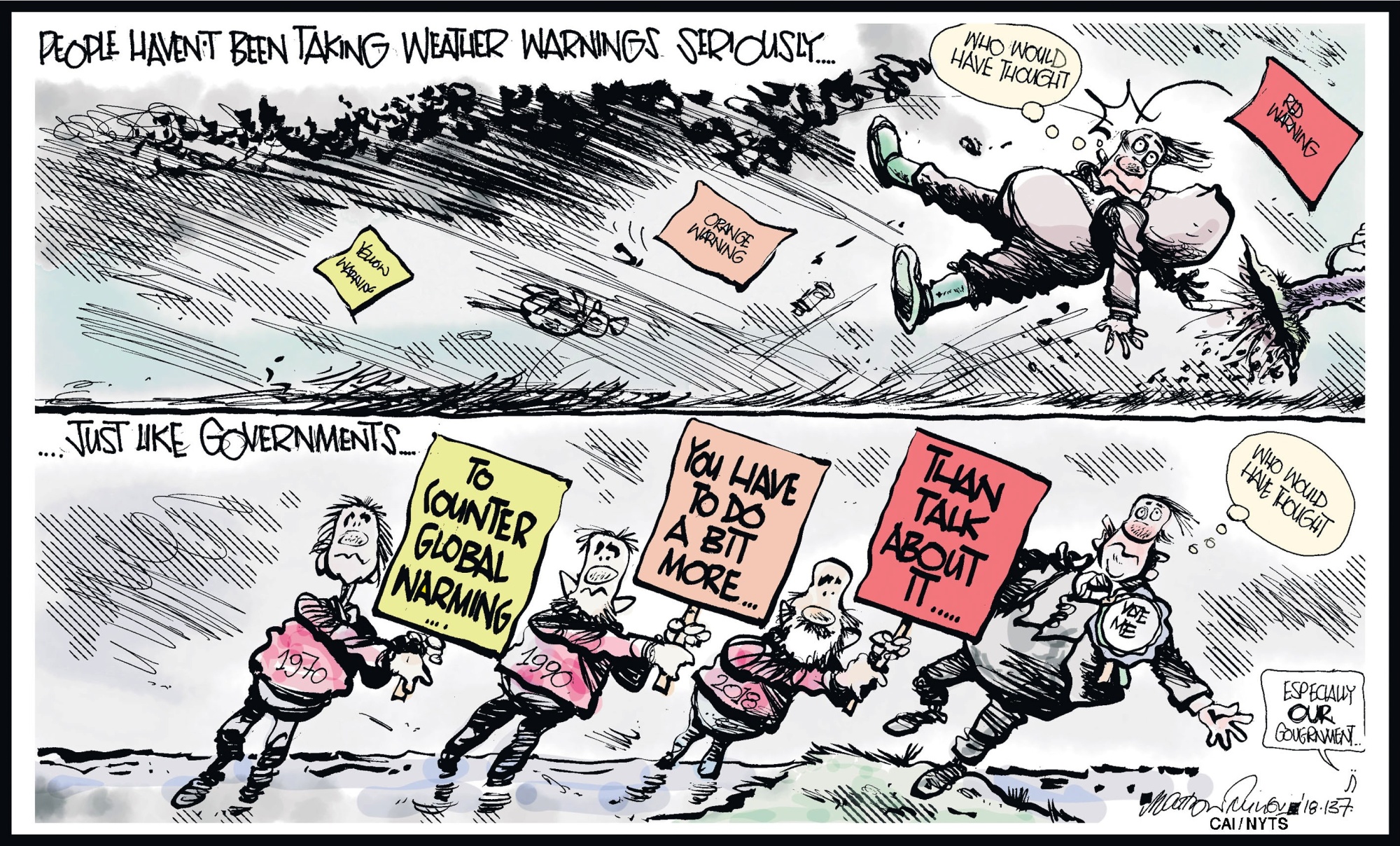This has been a year of extreme weather events, from the "Beast from the East" that froze much of the United Kingdom in March to Hurricane Florence on the U.S. East Coast and Typhoon Mangkhut in the Philippines. Scientists generally hesitate to say that any particular natural disaster is the result of climate change, but the overall intensity of storms certainly appears to be linked to the accumulation of human-generated greenhouse gases in the atmosphere.
But in the minds of many, assigning blame need not wait for full scientific certainty. There are tens of millions of people whose lives have been severely affected by natural disasters and perhaps billions who have noticed changing weather patterns in recent years. Like a growing share of politicians and most of the media, many of these people are becoming convinced that our reliance on fossil fuels is one of the underlying causes.
The fossil-fuel industry is a legitimate target for criticism, given that its products account for the bulk of annual global greenhouse emissions. "Big Oil" firms, in particular, have been hit by a number of actions relating to their role in climate change. In addition to protests at their sites in recent years, they have faced shareholder resolutions demanding a shift toward renewable energy sources, divestment campaigns and a growing number of climate-related lawsuits, particularly in the United States.

















With your current subscription plan you can comment on stories. However, before writing your first comment, please create a display name in the Profile section of your subscriber account page.